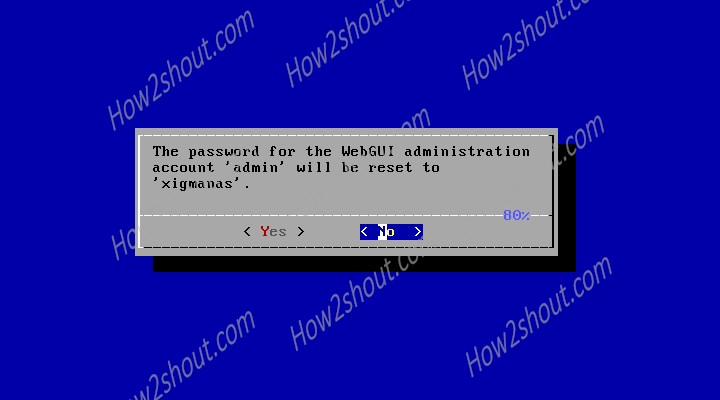

- Softraid config on 11.02 of nas4free install#
- Softraid config on 11.02 of nas4free upgrade#
- Softraid config on 11.02 of nas4free full#
- Softraid config on 11.02 of nas4free portable#
- Softraid config on 11.02 of nas4free software#
Softraid config on 11.02 of nas4free install#

Whereas those are on Linux they can go for etcher or Unetbootin
Softraid config on 11.02 of nas4free portable#
If you are on Windows 10/7, use a simple portable tool known as Rufus.
Softraid config on 11.02 of nas4free software#
Create Nas4free / XigmaNAS bootable USB driveĪs we know it is FreeBSD based thus, there are quite a good number of software available to create a Nas4free or XigmaNAS bootable drive. Let’s see the process of creating a bootable drive. This will not only consume less RAM but also free your system drives to use them for only one purpose that is storing data. Because of a low size and less memory consumption, we can use a Pen drive or Memory card to install Nas4Free as an embedded system. The size of its ISO file is just around 600MB. It is possible to boot it from a USB disk or CD.
Softraid config on 11.02 of nas4free full#
It is meant to support a wide range of old and new hardware architectures including virtual machine platforms such as VirtualBox, VMware, Hyper-V and more…įurthermore, we can install it on any supported hardware as a full installation or as an embedded one. Therefore, to develop NAs4free further, it needs the code of FreeNAS that was donated by Former founder of the FreeNAS project, Olivier Cochard-Labbé to this open-source NAS software developer team. However, the FreeNAS project was acquired by the iXsystems in 2011 which sells and supports computing and storage products and services. It is based on FreeBSD and was created from popular FreeNAS code (developed between 20). Know more about XigmaNASĪs I told above in 2018, the XigmaNAS had updated the name of this free operating system. Nas4free is available to download at Sourceforge, an opensource project hosting website, in the ISO file format, however, its official portal is XigmaNAS (Link).

Well, that doesn’t mean the open-source one is not up to the mark. However, the key difference between the open-source NAS server programs and the one which is proprietary available in premium network-attached storage boxes is the add-ons and ease of usage. It is particularly suitable for self-made NAS servers and offers the same range of functions as premium NAS server boxes such as Synology, Asustor, QNAP, WD Mycloud etc. XigmaNAS Live CD: Download the NAS4Free ISO image here
Softraid config on 11.02 of nas4free upgrade#

Monitoring via SNMP and for hard disk drives and solid-state drives (SSDs) via SMART (Self-Monitoring, Analysis and Reporting Technology), automatic reports and alarm messages via email Disk encryption with support for cryptographic hardware acceleration, 802.1q VLAN tagging Wake On LAN (WOL), CARP (Common Address Redundancy Protocol), HAST (Highly Available Storage) iTunes / DAAP server, Simple Network Management Protocol (SNMP), syslog. Other functions of the NAS operating system are: It is based on FreeBSD and after setup, we can access it through various network standard protocols FTP, SMB, NFS (network file system), TFTP, and AFP, SSH running on any available operating systems such as Windows, macOS, Linux, FreeBSD and Android. We can download and install it on our old and new server or personal computer for creating a DIY NAS box. Just like most of the Free NAS operating systems which are available free of cost to everyone, the Nas4free is too. Nas4free is available to download free of cost, however, now it known as XigmaNAS, thus we can get it from its official website.


 0 kommentar(er)
0 kommentar(er)
